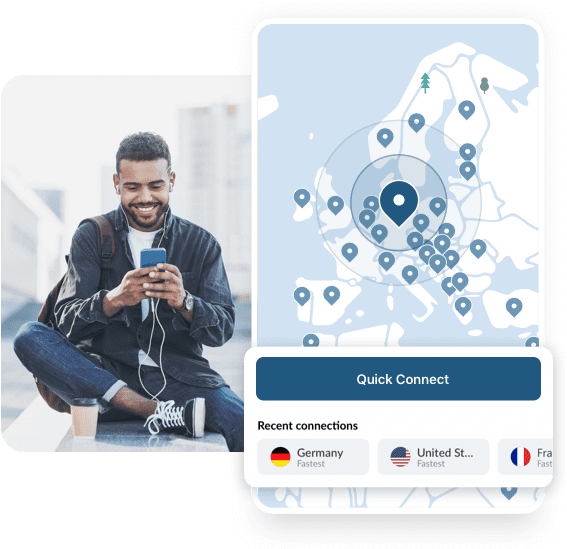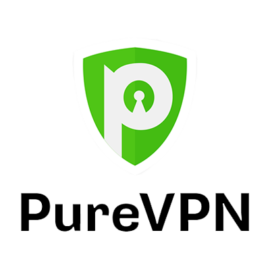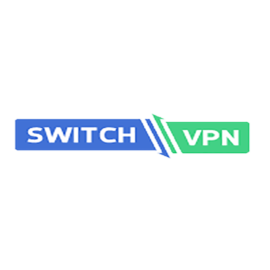
Welcome to VPN Busters
Here you will find all the data about VPN providers all over the world. Trusted reviews, guides, and recommendations to find the best solution to meet all your needs.

Best VPN in 2021 - Reviewed, Tested and Approved
Our smartphones, PCs, tablets, and other devices know everything about us these days. That's why protecting them means protecting ourselves. Every day notorious hackers, cybercriminals, and other masterminds look for weak links in the chain of your protection. They are eager to steal your identity, use your credit card, or install ransomware to your pure device.
I know it might sound like a conspiracy theory or paranoia. However, it is a reality. But an additional layer of protection is not the only reason to install a VPN client today. If you a traveler, do a lot of online banking or simply surf the Internet using a public hotspot - you need it.
What is a VPN, and How it Works?
Virtual Private Network (VPN) is a tunnel that allows you to connect to another network over the Internet securely. This software allows us to access geographically restricted content, overcome censorship, and provides additional protection against evil-minded individuals.
But how exactly does it work? Simply put, a VPN connects your computer or whatever device you are currently using to a server (which is another computer, let's call it computer B) and enables you to browse the Web from the computer B. Usually, servers are more powerful than a regular personal computer. That's why many users can utilize their internet connection simultaneously. If the server is located in another country - the Internet and targeted websites will see requests as those coming from this country. That is what lets you access content that is restricted to the place where you are at.
You might think at this point: "OK, but why do I need it if I don't plan on accessing anything illegal?" Fair enough. But a VPN is not a tool for that. With a VPN's help, you'll be able to use streaming services like Netflix and Hulu when you're abroad. Some countries also limit their citizens' access to social media and streaming platforms like YouTube, Facebook, or Instagram. But those are advantages for those who travel abroad. For the rest of us, VPNs provide at least some level of anonymity online by hiding our physical location and encrypting our traffic. Think about it, you save a password on your browser, enter your data to a banking client, and pay with your credit card left and right while online. Your browser or operational system, unfortunately, cannot withstand sophisticated attacks and ever-changing hacking tools. I mean, OSs do offer a certain degree of protection, don't get me wrong. But they would do it if you use the recommended browser and will be extremely cautious online. But there is no warranty. That's where a VPN comes to play.
Another common use case for a VPN is for those who love to work outside the office in a neighborhood coffee shop. Those hotspots are hardly ever protected even a little bit, and you never know what other people's intentions are.
How to find the best VPN?
When you start looking for the right VPN, you might be overwhelmed with the number of players on this market. There is a reason for that. Some providers give the best in kind protection; others are suitable for certain countries. Finally, not all VPNs work the same on different devices. As you can see, it all depends on your current needs and your online habits.
Here are some important tips on how to choose a VPN that is perfect for you:
- Think about what do you need a VPN for. That's going to be a different list of things for every person. Most of us don't buy the first laptop we see; that should be your attitude towards choosing a VPN as well. For example, if you need a VPN that will protect all the devices at your home, choose a router-based VPN. On the other hand, if you are a traveler who connects to many public WIFIs - you need to purchase from a provider that guarantees excellent safety and multiple server locations. And finally, if you're planning on streaming through a VPN, the connectivity, speed, and unlimited bandwidth are things you should be searching for. Once you have created a list of things you are typically doing - you'll quickly understand which features are important to you.
- Pay close attention to each VPN's qualities. Now that you know your requirements find a VPN product that excels at features of interest. For instance, only a handful of providers will be able to unblock Netflix or Hulu while you're out of the country. If that's what you need - the rest of the providers won't do the trick for you, regardless of how good their speed or reviews are.
- Check if your devices are compatible. Most modern VPNs work with all operating systems and devices. However, if you have a Windows computer and IOS phone, you need to make sure that a VPN will support them both.
- Find the one with an interface you can easily understand. If you are not into complex configurations, check the interface beforehand and the one in which you don't have to lift a finger.
- Check if the locations that are important to you are covered. If you plan on traveling to certain countries, make sure that the provider has servers in these countries. It doesn't hurt to read some reviews on how a chosen VPN performs in the given country, especially if it's the one that is highly regulated.
- Pick a plan that works for you. Find the option that will cover all of your needs and devices. When you get a family or business plan, most of the providers offer significant discounts. Another important thing is a money-back guarantee.
- And last but not least, pick a VPN with reliable customer service. VPNs change all the time, so do governmental requirements, viruses, and your needs. You don't want to find yourself helpless if something doesn't work all of a sudden.
Which Features Matter Most When Choosing a VPN
Of course, depending on your needs, some of the features will be more important than others. We put together the least of the essential things people usually look for while choosing a VPN.
- Download speed: Yes, the primary reason for downloading a VPN is safety. But no one wants to compromise on the speed. And hey, there is no way you'd be able to stream videos with a slow VPN.
- Privacy and security: I mean, that's why we are here. You'd be surprised, but some VPNs are not as secure as they might look and even were spotted selling their customers' data.
- Logging policy: We purchase a VPN to stay anonymous. And while with this service, you'll hide your data from the internet service provider, many VPNs would still keep your data. They may rarely track the websites you visited, the amount of bandwidth you've used, and so on.
- Torrenting and streaming abilities: If you're unable to download files or stream Netflix - it could be a speed issue or insufficient leak protection. Many popular VPN brands can't help you if torrenting is something you are planning to do.
- Usability and support: This one is pretty straightforward. You don't want to waste your time configuring a VPN or reading wordy user manuals. If you are in a foreign country and something doesn't work - you don't want to deal with it on your own.
- Cost: We will talk about why you shouldn't use free products, but you also don't want to overpay for the same service.
What are the benefits of using a VPN?
Protected file sharing
With VPN, you don't have to worry about your data being stolen while you are transferring some files. Also, you don't have to worry about entering your data to the bank client. But be careful. All of this applies to a high-quality VPN.
Remote access
Since VPN is an actual network, you can connect to it remotely. It especially comes in handy when your company has remote workers. Regardless of their location, they'll be able to work with the company's data and files without the risk of being exposed.
Anonymity
When you leave a digital trace, chances are something or someone will exploit this to their benefit. Besides, there are numerous online activities that none of us would want to be traced back to us. Regardless of it is what you're doing, a good VPN can grant your anonymity. It works better than proxies or incognito tabs since they are flawed and do not guarantee full protection.
Bypass filters and blockers
The censorship struggle is real. If you don't feel like being controlled by someone else's opinion on what you should or better not watch - VPN is a thing for you. That's especially important if you are a frequent traveler since the Internet does not look the same in many countries.
Improved performance
You could not overestimate the value of high bandwidth and improved efficiency. A reliable VPN with powerful servers can do that for you.
Enhanced Security
Since you use a VPN, your outcoming and incoming requests are encrypted. It means that you save your IP address, location, passwords, and data away from prying eyes. That's why by using a VPN, you are less vulnerable to hackers' attacks.
Paid vs. Free VPNs
The first and most important thing about free VPNs is that they were caught selling their users' data to the highest bidder. And since the majority of people are looking for that extra layer of encryption and privacy, that fact alone should be a good enough reason not to install a free VPN.
Another noticeable thing is the number of ads you are getting with a free VPN. Sometimes there are so many of them that it is nearly impossible to surf the internet with them. They do it on purpose - to push you to purchase a paid version of their product, which is not necessarily better.
Many free VPN providers would limit the amount of traffic you can use per day. At times, this limit is as little as 500MB of data per day, which is OK for browsing websites, but not for watching movies or streaming YouTube.
When you get a free version of a product, you don't get to choose a server you utilize, resulting in prolonged traffic. Besides, many users will try to connect to a server simultaneously, and the connectivity speed suffers from it.
Another thing about free VPNs is that they have limited IP addresses to connect to websites. That means that streaming services or websites might already block them, and you simply won't access them.
With the paid version of a product, you will get unlimited data, a great protection level, and customer support.
Are VPNs Fully legal?
First of all, it depends on the country you are in. There are countries with a high level of censorship, like Russia or China, so VPNs' usage there is prevalent, and governments work to stop their citizens from using these services. But not many countries took a stance against VPNs. It means that you need to check out the list of countries where VPN usage is illegal, and if the country is out of the list - you're good.
However, if you use a VPN to perform some illegal activities - there is no guarantee that you won't be caught. Privacy on the Internet is always relevant. In other words, VPNs are legal in the vast majority of countries. Illegal actions conducted with the help of VPNs - are not.
Can I use a VPN on Any Device or Operating System?
An average internet user runs three connected devices. That means that it is not enough just to protect your computer anymore. And if you have an IOS phone, Windows computer, and something else - will your VPN protect them all? That's a great question—compatibility matters.
Even though every big provider claims to be compatible with every OS out there, you should understand that they can connect doesn't mean that they perform the best with the given device or OS. You should consider the types of devices you are using before signing up for any kind of product. At the very least, google what provider is the best for your OS and device. If all of your devices run on the same OS - you should not have any problems. Except for Linux because they have multiple versions of OSs that require different configurations. There shouldn't be a problem for the rest of the devices - just go to the provider's website, select your device and follow the instructions to ensure that you are getting the most out of your VPN.
Can VPN unblock Netflix and Youtube?
VPN is an effective workaround to overcome geographical content restrictions. However, not all VPNs will allow you to watch your favorite shows or YouTubers while abroad.
Free VPNs have a limited number of IP addresses, and sometimes they might be already blocked by Netflix to please local governments. Another downfall of many VPNs is low speed. In this case, you will be able to connect to the service, but the connection will be poor, so you won't have an opportunity to enjoy the content you love.
Also, if a chosen VPN does not have servers in a country from where accessing Youtube and Netflix is easy - there is no use of it for this specific purpose. That's why we strongly recommend using a paid option for streaming services like Netflix, Hulu, and Youtube.
Here are some things a VPN should have to unlock streaming services:
- Fast download speeds to stream without buffering
- A versatile international network of servers (specifically in countries where Netflix and Youtube are not blocked and geographically close to the country you are at)
- Simple app that is easy to navigate and set up
- Strong security and privacy
Do VPNs Support Torrenting?
The short answer is yes. That's a private network, meaning that the police or your ISP won't be able to see your internet activity, the websites you visit, and the files you download. But the catch is that not all of the VPN providers allow BitTorrent on their servers because of its bad reputation. We are not going to talk about your reasons, why do you want to use it, since many users do not go there for pirate content. Whatever your reasons are, it doesn't hurt to read your VPN's terms and conditions beforehand. That said, you need to remember that no protection is bulletproof. Sometimes the problem is VPN itself. Some VPNs log users' activity, and this information could potentially be used by law enforcement.
So VPNs do not support BitTorrent, but they don't mind it. At least most of them. Choose wisely and remember that any illegal activity has a way of seeing the light in the end.
Do VPN Providers Log My Activity on the Internet?
It depends. No-logs policy is a huge selling point for many VPNs. But understanding which information regarding your usage of their servers provider keeps is critical to your safety.
Here are some statistics of the popular VPN services:
- 46% keep connection timestamps
- 44% keep bandwidth usage logs
- 26% log originating IP address
- 6% log browsing activity data
They have their reasons to keep this data: troubleshooting or service improvements.
Impressive, right? Some of the providers are deliberately vague about which data do they log and for how long do they keep it. That's why you better pick a provider that is transparent about their policies and do everything to protect their users' privacy. And while keeping bandwidth usage logs might be OK, keeping your browsing activity data has no excuses—it kind of defeats the purpose of using a VPN in the first place. Yes, your ISP won't have your data, but your VPN provider has it all.
Is Using VPN Guarantee 100% Anonymity?
The sad news is there is no such thing as 100% anonymity. However, everyone puts a different meaning to this. If you are looking to hide your traffic from your ISP - with VPN, you got this. But if you want to be invisible to everybody - you need more than just a VPN.
If you use a new WI-FI network and you allowed your browser to use your location - a VPN will not help you hide your site. If you have social media accounts that have your face and location displayed - forget about the privacy. There are many other things to consider to stay invisible online, but installing a VPN is an excellent step towards your security.
What Is The Difference Between VPN and Proxy?
Those two services are aimed to protect users' identity - that's why people often think they are the same thing. Even though both can unblock content and hide your IP address - they are not the same.
- VPN encrypts your traffic, while most proxies don't. That's important if you want to get a higher level of security while online.
- Proxy works on an application-level leaving some blindspots if you don't have perfect online discipline, and let's be honest, most of us don't even know what it is. VPN works on an OS level and reroutes all of your traffic.
- Proxies are usually cheaper.
- VPN can be slower since it needs time to encrypt your data, but there are ways around it.
Generally, VPN and proxy serve different purposes, and which one to get depends on your specific needs.
What Is The Average Cost of a VPN in 2021?
The average cost is around $10/month when you get a 1-3 year agreement. Most of the providers would ask you to prepay a contract for a year. Of course, there are different discounts available if you sign up for a longer period or get a family plan. Don't forget that Black Friday is coming, and many providers will offer bargain deals.










